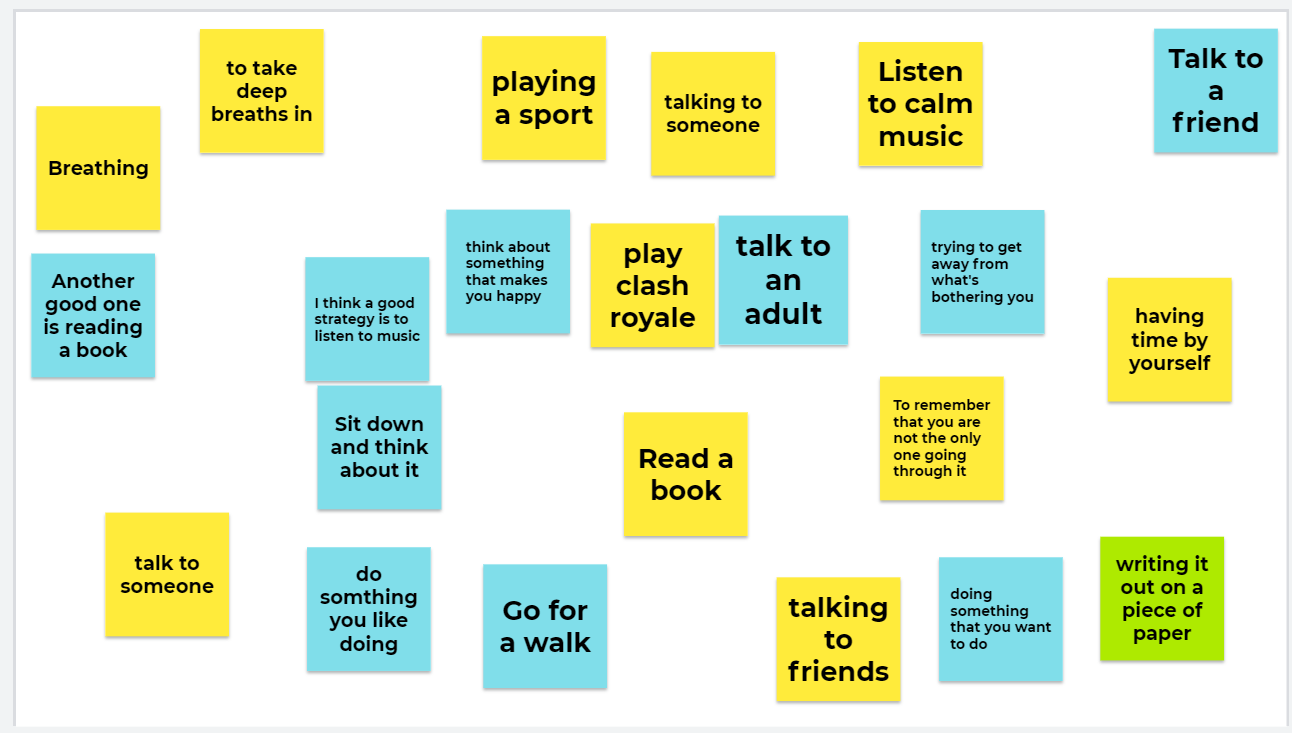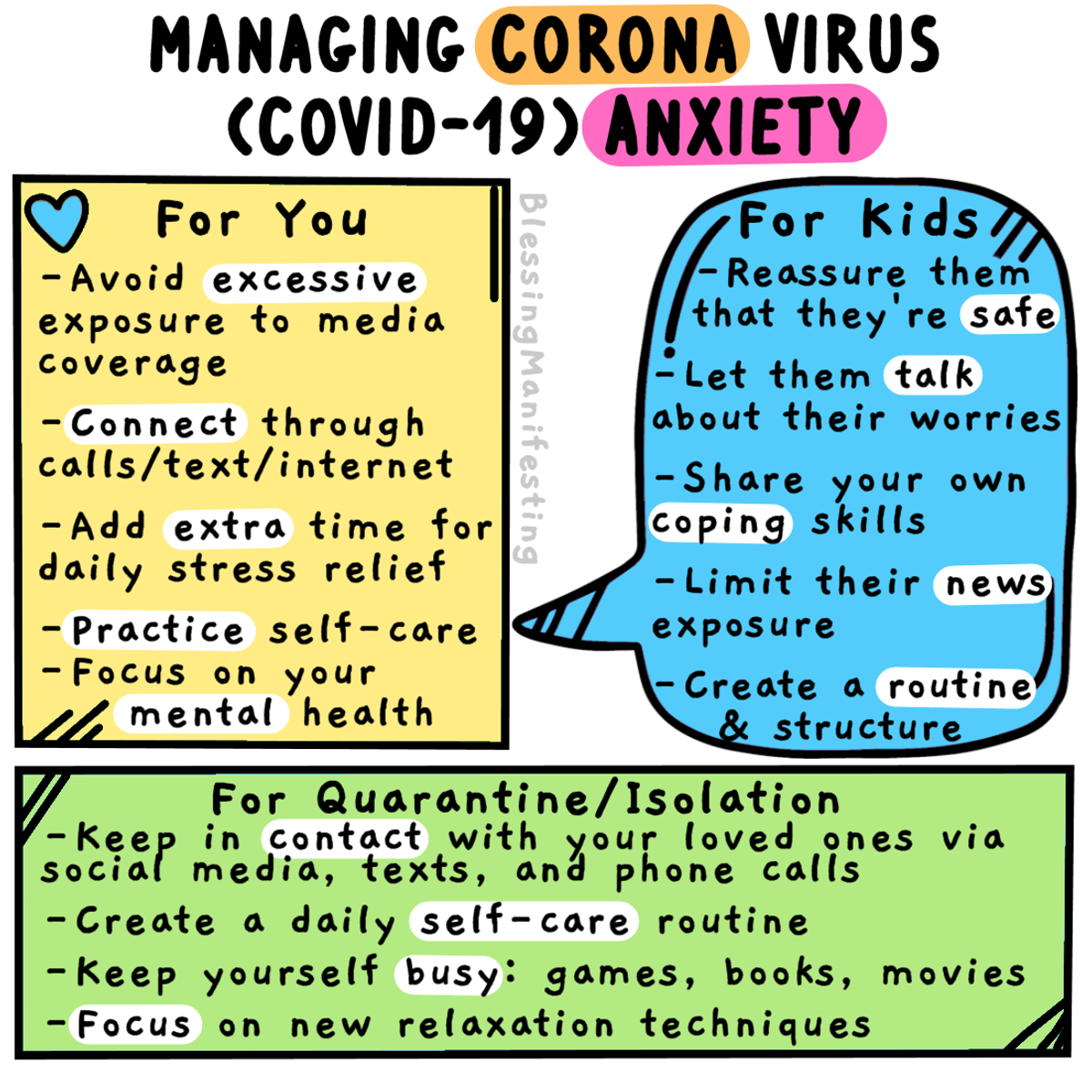Student Well-being

Community Spotlight: Year 5/6 Community
Focus: 2:00 pm Check-Ins, Building Morale
Throughout the last few weeks of our remote learning program, the Year 5/6 Community have used their wellbeing sessions to focus on building positive mindsets.
We have continued with our 2:00 pm Check-in, allowing students to have some time to discuss how they are feeling, ask questions and even just having time with each other to chat. The social interactions during this time are proving to be very important as we cannot mix with our peers in person. At times we have used this Check-in to run through wellbeing lessons live prompting discussion responses.
After watching a BTN video around “Managing Difficult Emotions” this prompted discussions between students about ways they can relate to the recent announcement of lockdown and lockdown extensions. The following Jam Board was suggestions given by students on how to deal with difficult emotions such as feelings of anxiety, anger and sadness.
In Year 5/6A students wrote a letter to their future self, finding the positives in the current situation and ways they are going to deal with the extended lockdown. The below samples of work are examples of letters students wrote to their “Monday Self” to be opened on the Monday as a positive reminder of how to approach the day ahead:
Dear Roman
You're a passionate friend and you care about those around you. You always smile even when you don’t want to and you're an extraordinary person.
On Monday walk Paule, maybe watch a movie with mum and be yourself like you always are.
From Friday Roman
Dear Michael,
I love how you are a good sibling to Daniel when he isn't to you, how well you play with your friends and your dog and how you contact your friends in lockdown.
I wish that you will have a good day and go to the park with Eamon/Dion
Have a great day
From Friday Michael
Managing COVID-19 Anxiety
If you’re feeling anxious or worried during this time, you’re not alone. Even if you are not typically an anxious person, it’s common to feel some anxiety during periods of change or uncertainty. Here are some practical ways that you can keep feelings of anxiety at bay if you are starting to feel overwhelmed.
1. Channel your anxious energy into action: get informed, plan, and prepare
We often feel anxious when events feel out of our control, and when we think we don’t have the capacity, skills or ability to cope. Anxiety tricks us into thinking about the worst-case scenarios in vivid and frightening detail.
Instead of worrying, try your best to focus on what’s under your control. Equip yourself with the facts about COVID-19 from trusted sources. Follow government advice and make a plan about what you and your family will do if you need to be in isolation or quarantine.
2. Limit or avoid unhelpful media and misinformation
Being exposed to constant, alarming, anxiety-inducing stories convinces us that there is something to panic about and further perpetuates myths, rumours, misinformation, uncertainty and anxiety. The more we read and hear about it, the more frightening it becomes, and the less chance we have to distract ourselves and do things that can take our minds off it.
Although it might be tempting to keep informed, or difficult to escape, limiting your exposure to media, news, and social media about COVID-19 will help quell the panic.
3. Cut down or stop the behaviours that are fueling your anxiety
There are certain actions when performed frequently, that can fuel anxiety about health and germ-phobia. Focusing too much on bodily symptoms and relying on “Dr Google”, can consume one with anxious thoughts and panic.
Being aware of these behaviours, understanding how they’re making you feel, and replacing them with more helpful coping strategies can alleviate disproportionate feelings of anxiety.
4. Stay focused on the here and now, taking each day step by step
Try to focus on the here and now - not the past and not the future. Live in the moment and take one day at a time.
5. Be aware of negative thoughts and don’t give them too much power
Just because we’re thinking something, doesn’t always mean it’s true. When you notice yourself worrying a lot, take a step back, and try to let worries pass by without focusing on them too much.
6. Look after your body
Get enough sleep, exercise, eat well and avoid having too many adult drinks. This will help protect your mental health and immune system.
7. Stay connected with others
It can make a huge difference when we share our worries with others, and connect with other people who are supportive. Try to stay connected to supportive people in your life so you feel less isolated and lonely. You might need to try new ways of connecting that you haven’t before.
8. Help other people, be kind, and compassionate
When we help other people, it can also make us feel better. We are all in this together so let’s try our best to be kind and compassionate to each other.
9. Take a breath
When you feel overwhelmed take a few slow, deep breaths to help you calm down. If there are other things that help you relax (e.g. a walk, cleaning, baking or listening to music) try these too.
10. If you’re feeling like you’re not coping, get professional advice
It’s okay to ask for help. If you’re feeling overwhelmed by anxiety, seek professional support. Psychological therapies can be done online, or remotely via phone or video conferencing, and are an excellent option if you’re in self-isolation, or worried about going to a clinic.
Take care,
Lauren Borg
Student Well-being Leader



